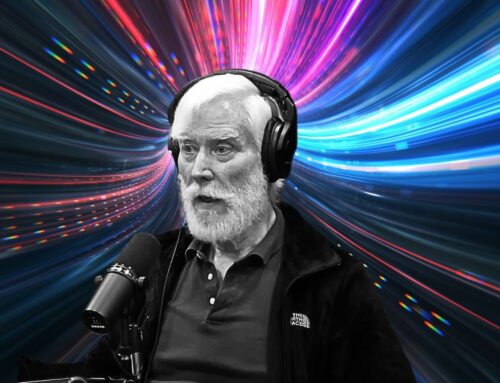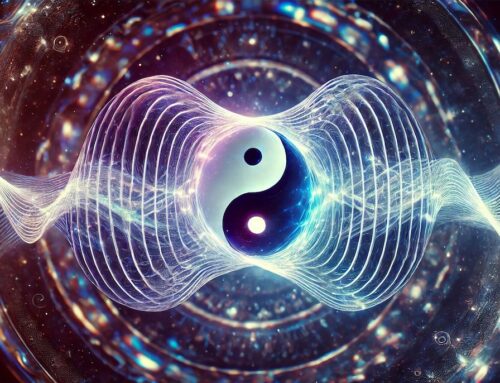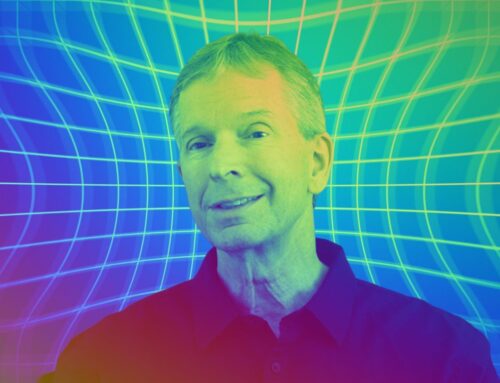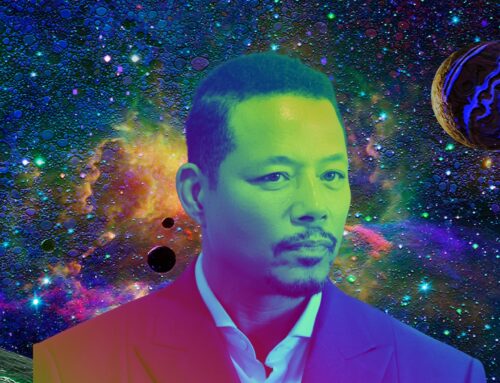Science is constantly pushing the boundaries of what we know. Most people are familiar with well-established theories like gravity, evolution, or relativity. But there’s another side to science, where unconventional ideas and groundbreaking hypotheses are quietly being developed. These theories haven’t hit the mainstream yet, but they hold the potential to change how we see reality.
Some of these ideas challenge the nature of existence itself, questioning whether we live in a simulation or suggesting the universe is a hologram. Others offer new ways of understanding life, consciousness, or even the origins of the cosmos. What they all have in common is their ability to shift our perspective, opening our minds to a wider range of possibilities.
These lesser-known scientific theories remind us that the universe is still full of mysteries. As we explore these fascinating concepts, it’s worth considering that today’s fringe ideas might become tomorrow’s scientific breakthroughs. Whether they eventually prove to be true or false, they offer new ways of thinking that can broaden our understanding of reality.
In this post, we’ll explore ten such theories—each one potentially revolutionary, but still under the radar. Let’s dive into the ideas that could redefine how you think about the world.
1. The Holographic Universe Theory
- The Theory: The Holographic Universe theory suggests that the entire universe might be a two-dimensional surface projecting a three-dimensional reality, much like a hologram.
- Why It Matters: If true, this theory implies that our understanding of space and time is fundamentally flawed. It challenges the very nature of reality, suggesting that everything we experience might be an illusion of depth and dimension.
- What’s Next: Researchers are looking for ways to test this theory by observing cosmic phenomena, particularly in black hole physics, where the holographic principle could be most evident.
2. Quantum Darwinism
- The Theory: Quantum Darwinism proposes that classical reality emerges through a process of natural selection at the quantum level. In essence, quantum states that are most robust and observable are “selected” to form our reality.
- Why It Matters: This theory bridges quantum mechanics and the observable world, potentially explaining how the weirdness of quantum behavior gives rise to the stable, predictable reality we experience.
- What’s Next: Ongoing experiments in quantum physics aim to validate or refute Quantum Darwinism by examining how quantum states evolve and become observable.
3. Panspermia Hypothesis
- The Theory: The Panspermia hypothesis suggests that life on Earth may have originated from microorganisms or chemical precursors of life present in space, delivered here by comets, meteorites, or cosmic dust.
- Why It Matters: If true, it means life on Earth might not be unique. Life could be common across the universe, and we might all share a cosmic ancestry.
- What’s Next: Space missions and studies of ancient meteorites continue to search for evidence of extraterrestrial microorganisms or organic compounds that could support this hypothesis.
4. The Simulation Hypothesis
- The Theory: The Simulation Hypothesis posits that all of reality, including Earth and the universe, could be an artificial simulation, possibly created by a highly advanced civilization.
- Why It Matters: This theory questions the nature of existence itself. If we are living in a simulation, it challenges our concepts of free will, consciousness, and even the nature of the divine.
- What’s Next: Philosophers, computer scientists, and physicists are exploring ways to detect “glitches” or inconsistencies in the universe that could suggest we’re in a simulated environment.
5. The Multiverse Theory
- The Theory: The Multiverse theory suggests that our universe is just one of countless others, each with its own laws of physics, dimensions, and possibilities.
- Why It Matters: This theory could explain some of the unsolved mysteries in physics, like the fine-tuning of the universe for life. It also expands the possibilities for existence and reality beyond anything we can currently comprehend.
- What’s Next: Advances in cosmology and quantum mechanics might provide indirect evidence of other universes, though direct proof remains elusive.
6. Morphic Resonance
- The Theory: Proposed by Rupert Sheldrake, Morphic Resonance suggests that natural systems, such as cells or organisms, inherit a collective memory from all previous similar systems.
- Why It Matters: If true, it implies that memory is not stored in the brain but rather accessed from a universal field. This could revolutionize our understanding of biology, psychology, and even evolution.
- What’s Next: Experiments in biology and psychology are attempting to test the theory by studying how organisms and species develop in ways that might be explained by collective memory.
7. Quantum Consciousness
- The Theory: The Quantum Consciousness theory, championed by physicist Roger Penrose and anesthesiologist Stuart Hameroff, suggests that consciousness arises from quantum processes within the brain’s neurons.
- Why It Matters: This theory could bridge the gap between physics and consciousness, offering a new way to understand the mind, free will, and the nature of the soul.
- What’s Next: Neuroscientists and quantum physicists are investigating the microtubules in neurons for quantum activity that might correlate with consciousness.
8. The Gaia Hypothesis
- The Theory: The Gaia Hypothesis, proposed by James Lovelock, posits that the Earth and its biological systems behave as a huge, self-regulating organism, maintaining the conditions for life.
- Why It Matters: This view could transform how we approach environmental science, emphasizing the interconnectedness of life and the planet. It supports the idea that life on Earth works together in harmony to sustain itself.
- What’s Next: Research in climate science and ecology continues to explore the feedback loops between living organisms and the environment, which could support or refine this theory.
9. The Anthropic Principle
- The Theory: The Anthropic Principle suggests that the universe is finely tuned for the existence of life, particularly human life, and that this fine-tuning is either a fundamental feature of the universe or a selection effect—only in a universe capable of supporting life could observers exist to notice this fine-tuning.
- Why It Matters: This theory challenges the idea that life is a mere accident of random processes. It suggests that the universe might be designed with purpose or that life and the universe are deeply interconnected.
- What’s Next: Philosophers and cosmologists continue to debate the implications of this principle, especially in the context of the Multiverse theory.
10. Biocentrism
- The Theory: Proposed by Robert Lanza, Biocentrism suggests that life and consciousness are central to the universe and that reality is created by our observations, not the other way around.
- Why It Matters: This theory turns traditional physics on its head, suggesting that life and consciousness are not byproducts of the universe but fundamental to its existence. It could redefine our understanding of life, death, and the cosmos.
- What’s Next: Theoretical physicists and philosophers are exploring the implications of Biocentrism, particularly how it might align with or challenge established theories in quantum mechanics and cosmology.
These theories, though not mainstream, offer fascinating perspectives that challenge our understanding of the world. As science advances, some may fade, while others could reshape our view of reality. Keep an open mind, as today’s fringe ideas might become tomorrow’s truths.
✨ Start With Values
Receive $400 of bonus resources with any order of my new book,Start With Values (Penguin Random House).
Written by : Brad Hook
Brad Hook is a writer, podcaster, speaker and entrepreneur. He helps individuals and teams achieve sustainable high performance through inspiring workshops and a powerful suite of digital tools. Discover his new book, Start With Values (Penguin Random House), — available now!
Stay connected with Brad
BE NOTIFIED ABOUT EVENTS and receive the latest tools and tips first
We will never share your email with others.





